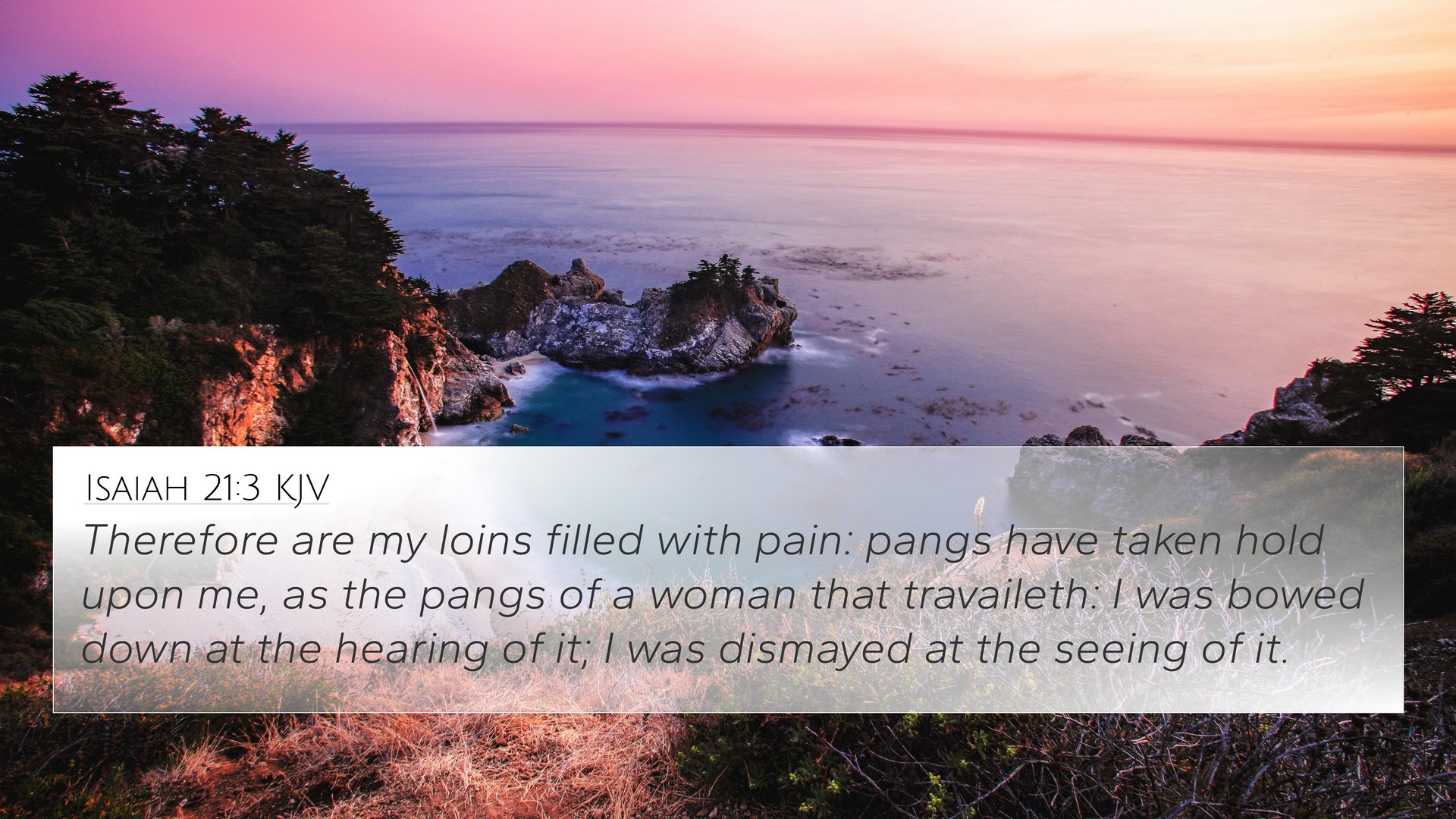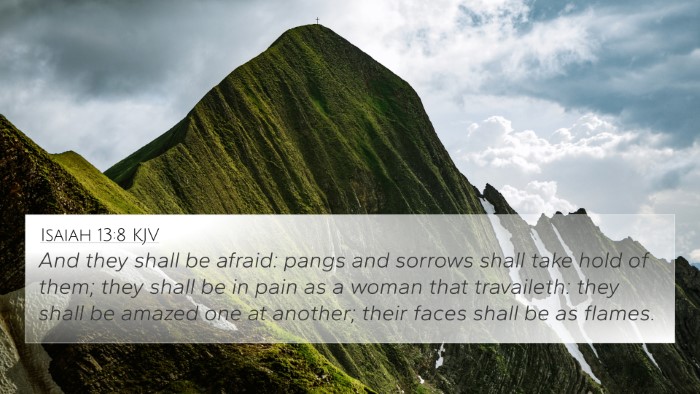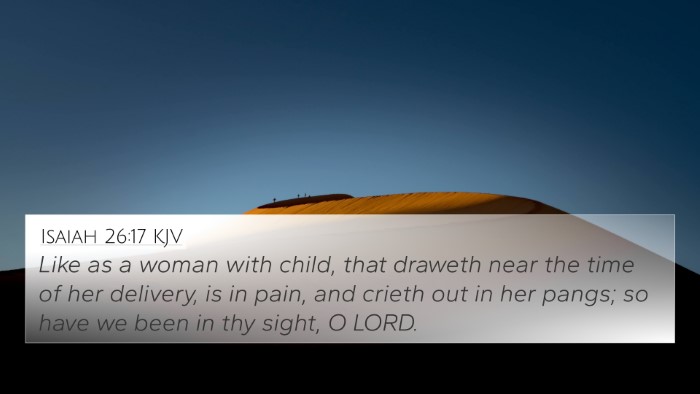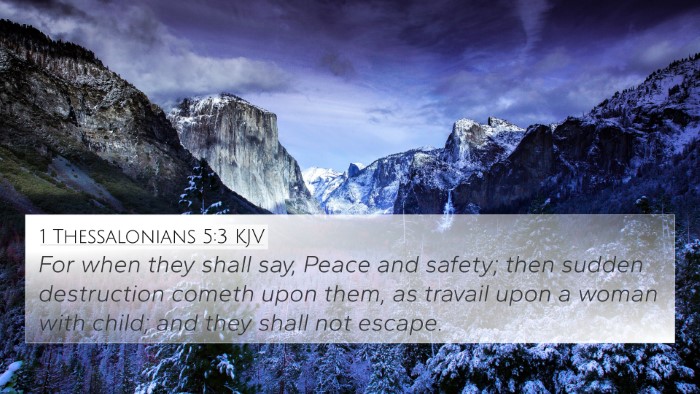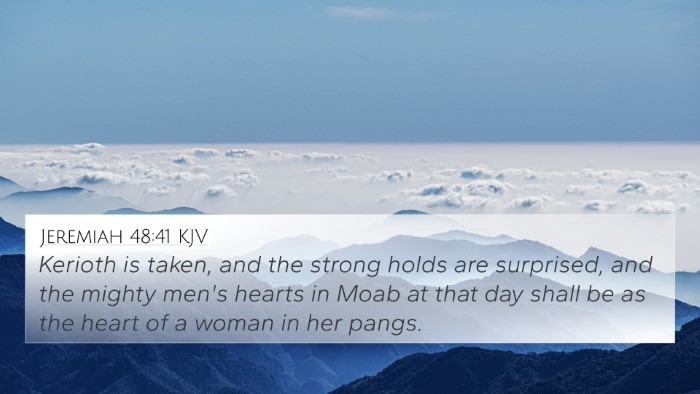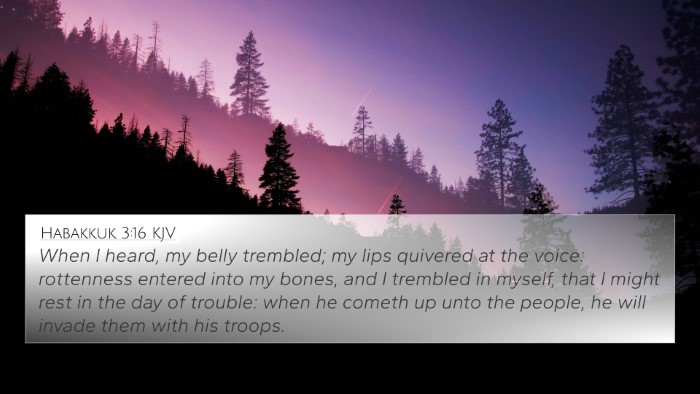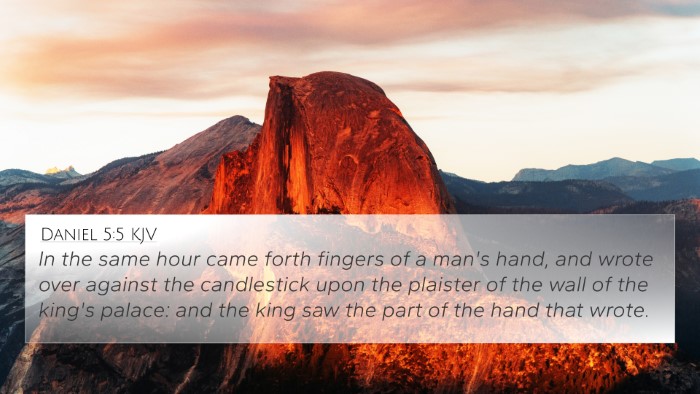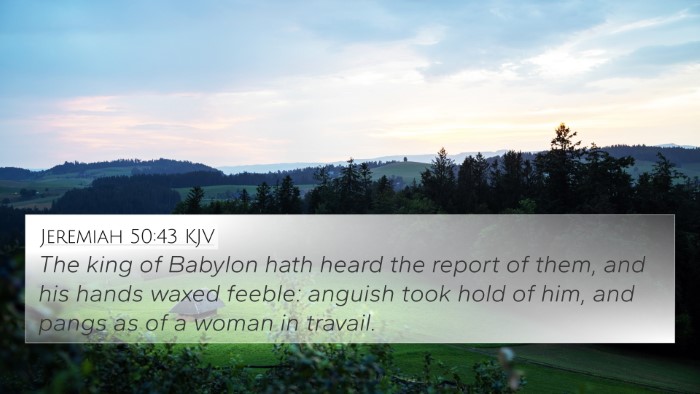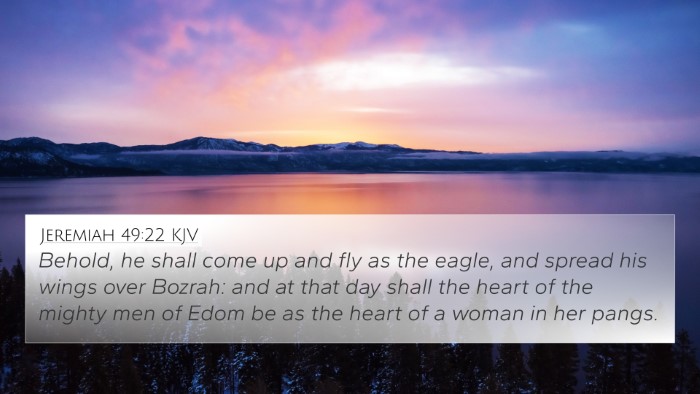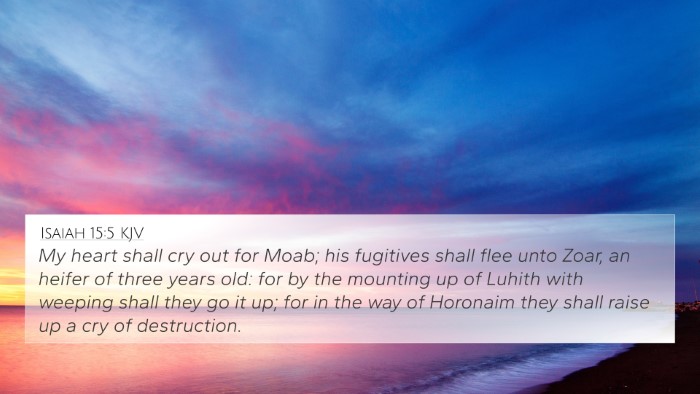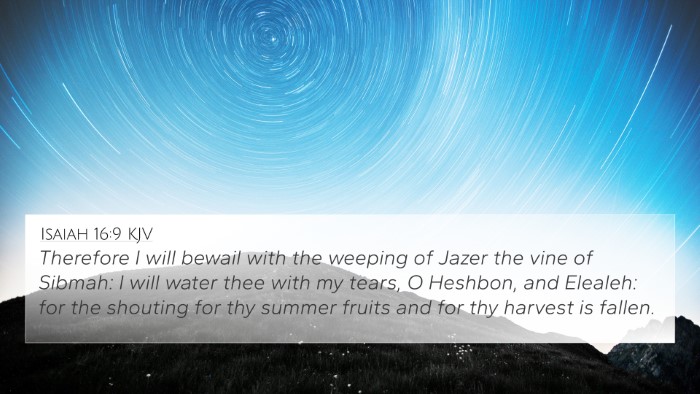Understanding Isaiah 21:3
Verse: Isaiah 21:3
This verse presents a profound moment of prophetic distress, where the prophet Isaiah expresses deep sorrow and anguish over impending judgment. The emotional weight of the verse signifies the seriousness of the divine message delivered.
Summary of Insights from Commentaries
Isaiah 21:3 reveals the inner turmoil of the prophet in response to the burdens he foresees for Babylon. Drawing from the insights of various public domain commentaries:
- Matthew Henry: He interprets this verse as a declaration of grief, illustrating the prophet's heartache over the destruction that awaits Babylon. Henry emphasizes the prophetic role of delivering both hope and warning, noting the personal impact of witnessing divine judgment.
- Albert Barnes: Barnes focuses on the implications of this prophecy, suggesting that it serves as a reminder of the consequences of sin and rebellion against God. He highlights the significance of the prophet's anguish as a model for how we should respond to the disobedience and suffering seen in the world.
- Adam Clarke: Clarke offers a more historical context, addressing the societal conditions of Babylon at the time. He discusses the nature of Israel's relationship with God and how their struggles reflect broader themes of faithfulness and consequences in both the Old and New Testaments.
Cross-Referencing Isaiah 21:3
This verse can be cross-referenced with several other Biblical texts that highlight similar themes of judgment, sorrow, and prophetic warning. Understanding these connections enriches our study and interpretation of scripture.
- Jeremiah 51:8: Discusses the fall of Babylon and serves as a direct prophetic parallel to Isaiah's lament.
- Lamentations 1:1: Reflects the sorrow of a city experiencing God's judgment, echoing Isaiah’s grief.
- Ezekiel 30:1-3: Warns of impending doom, emphasizing the need for repentance and warning.
- Revelation 18:2: Describes the fall of Babylon in a symbolic context, reinforcing the themes of judgment and consequence.
- Matthew 24:7: Similar themes of nation rising against nation can be inferred, connecting Old Testament prophecies to New Testament teachings.
- Isaiah 13:19: Foretells Babylon's destruction, illustrating the consistency of Biblical prophecy regarding this nation.
- Micah 1:10: Speaks of mourning for a city, providing a thematic connection to Isaiah's distress.
Thematic Connections
The anguish expressed in Isaiah 21:3 resonates with a larger frame of scriptural cross-references that explore God’s judgment, the responses of prophets, and the themes of hope amidst sorrow. By understanding these connections, one can grasp the depth of divine communication throughout the Bible.
Tools for Cross-Referencing Bible Verses
Utilizing resources such as a Bible concordance or Bible cross-reference guide can greatly enhance our understanding of verse connections. These tools serve to:
- Identify connections: Between the Old and New Testaments, and uncover deeper insights.
- Facilitate cross-reference studies: Enabling smoother engagement with scriptural texts.
- Prepare sermons: Offering comprehensive materials that aid in the development of biblically grounded messages.
Conclusion
Isaiah 21:3 serves as a poignant reminder of the prophetic burden felt by Isaiah and underscores the importance of recognizing God’s sovereignty and the resulting responses to sin and judgment. By engaging with this verse through cross-referencing and thematic exploration, we can uncover rich insights and connections that speak to the heart of the biblical narrative.
Engaging with Scripture: As you study, remember to ask yourself what verses are related, how they connect to each other, and what insights emerge from this inter-Biblical dialogue. This approach not only deepens understanding but also enriches faith.
